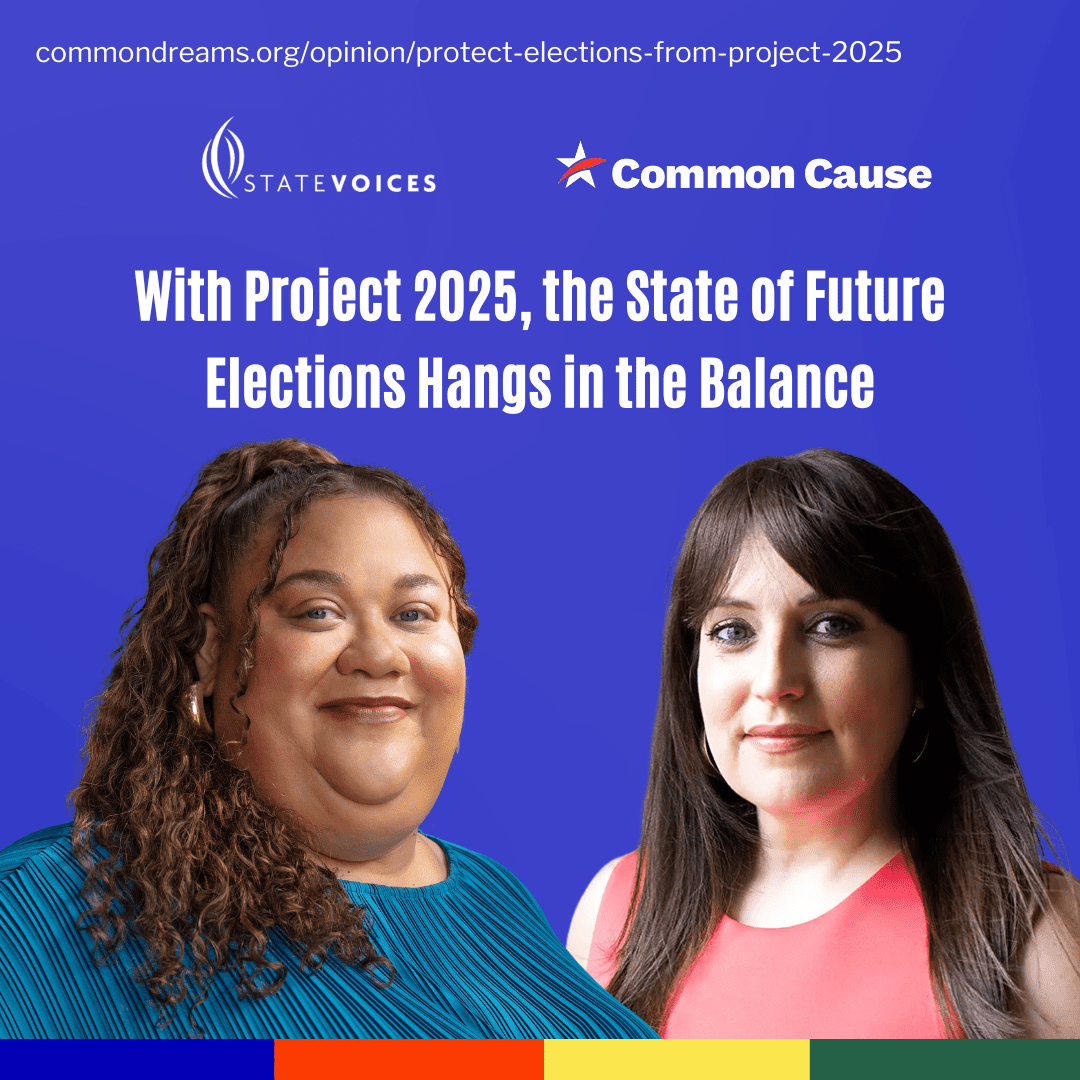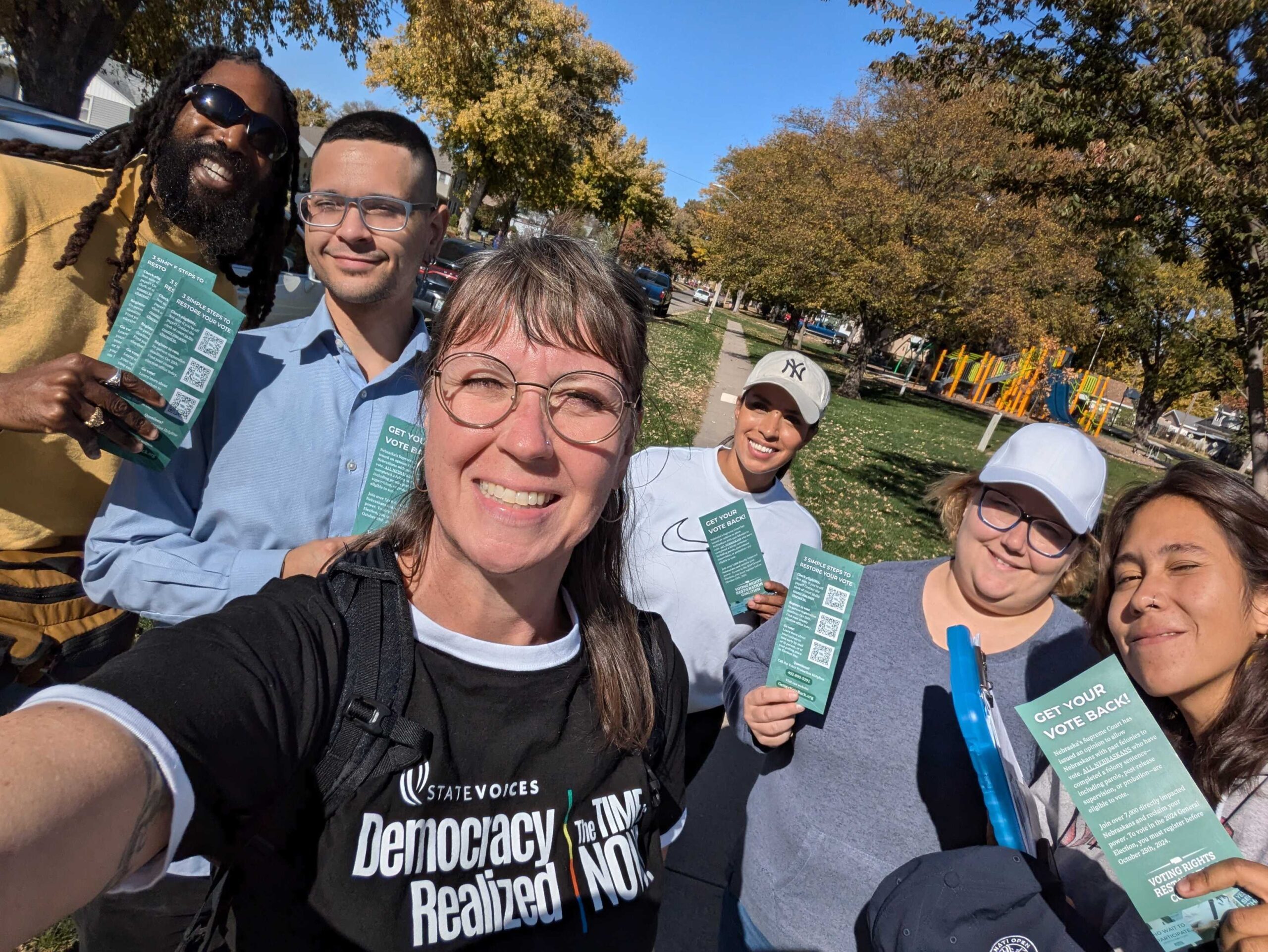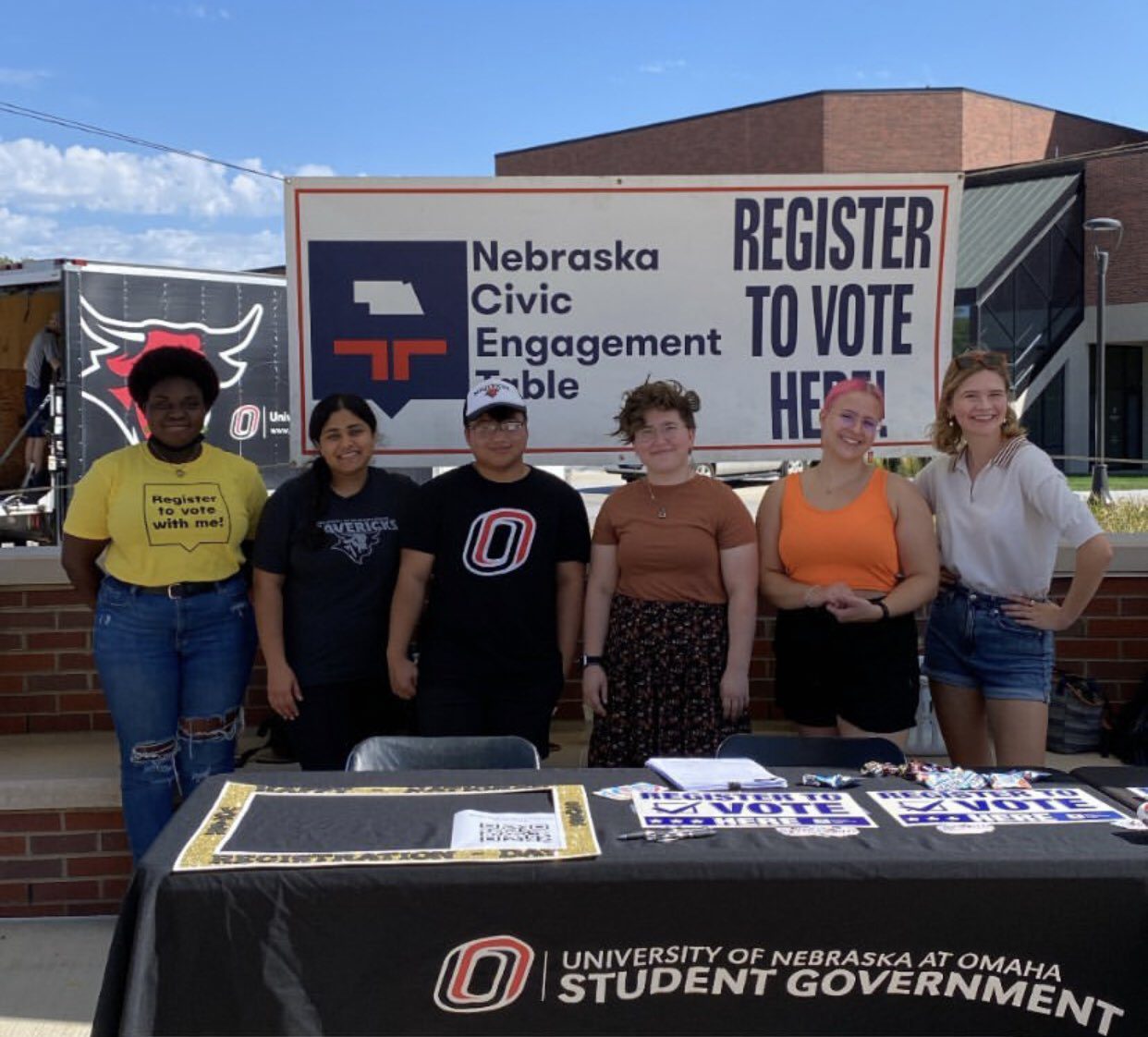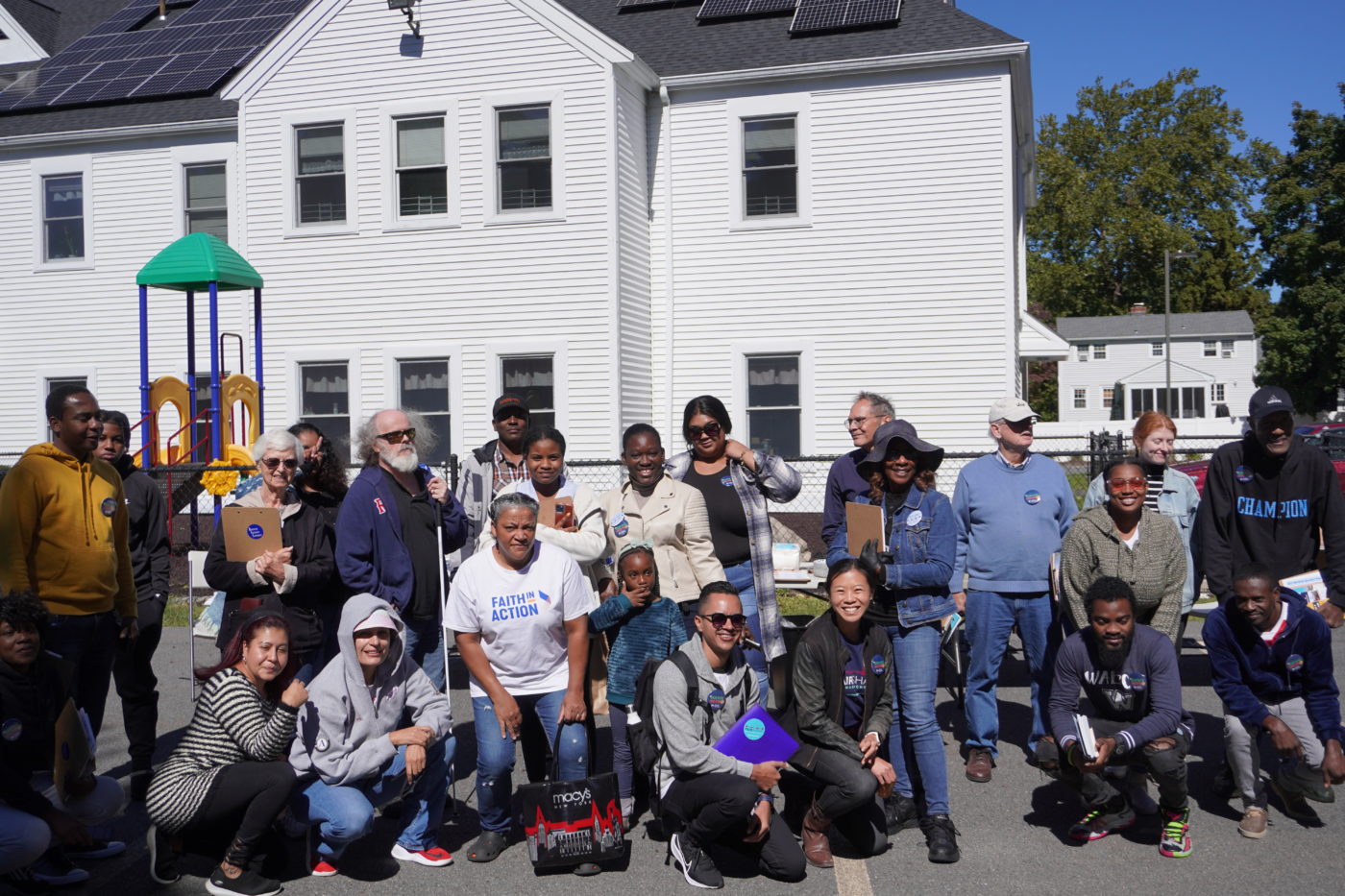January 2023 update: Check out our 2022 Report for our most up-to-date analysis of the 2022 midterms and our network’s efforts.
We deserve a world that counts every vote, hears every voice, and meets every need. We’re fighting to make this world a reality every day. The 2022 midterm election season has demonstrated the collective power of marginalized communities in this fight.
At the close of 2021, 19 states passed 34 laws restricting access to voting. Despite this, voters have turned out in record numbers. While ballots are still being counted across the country, over 42.3 million people voted early; an increase of 5.2 million from 2018. BIPOC voters represented a quarter of all early and absentee ballots in 2022.
Since the 2020 election, our network hasn’t stopped planning, building capacity, and organizing year-round. While greedy and self-interested politicians tried to keep us silent instead of keeping us safe, organizers and advocates across the U.S. fought to ensure that historically marginalized voices would be heard this election season.
Read on to learn more about our network’s impact this year:
- Efforts to get out the vote and protect the vote with BIPOC communities
- Reproductive justice and economic justice issues on the ballot
- Voting rights efforts in the courts
- Sharing data, technology, and digital resources with on-the-ground organizers and activists to help mobilize communities
- Moving money to the ground and investing in BIPOC leadership
By the Numbers

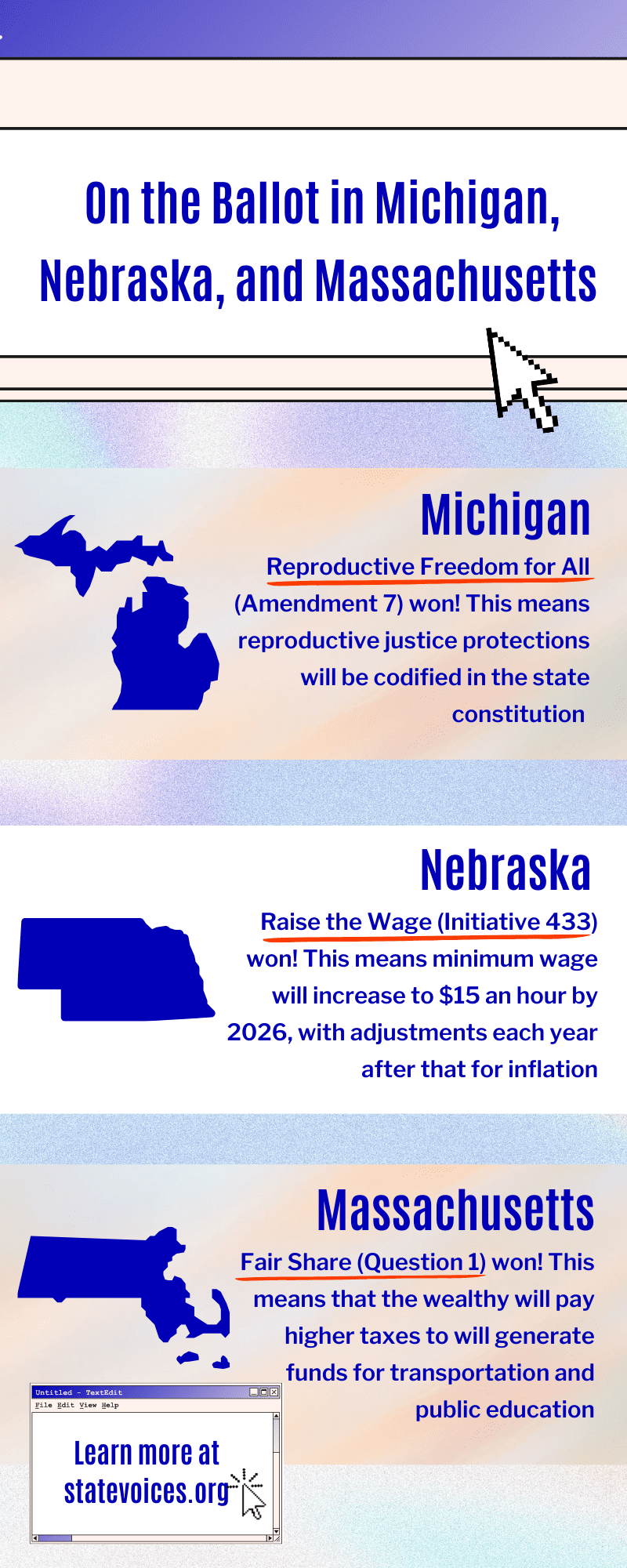
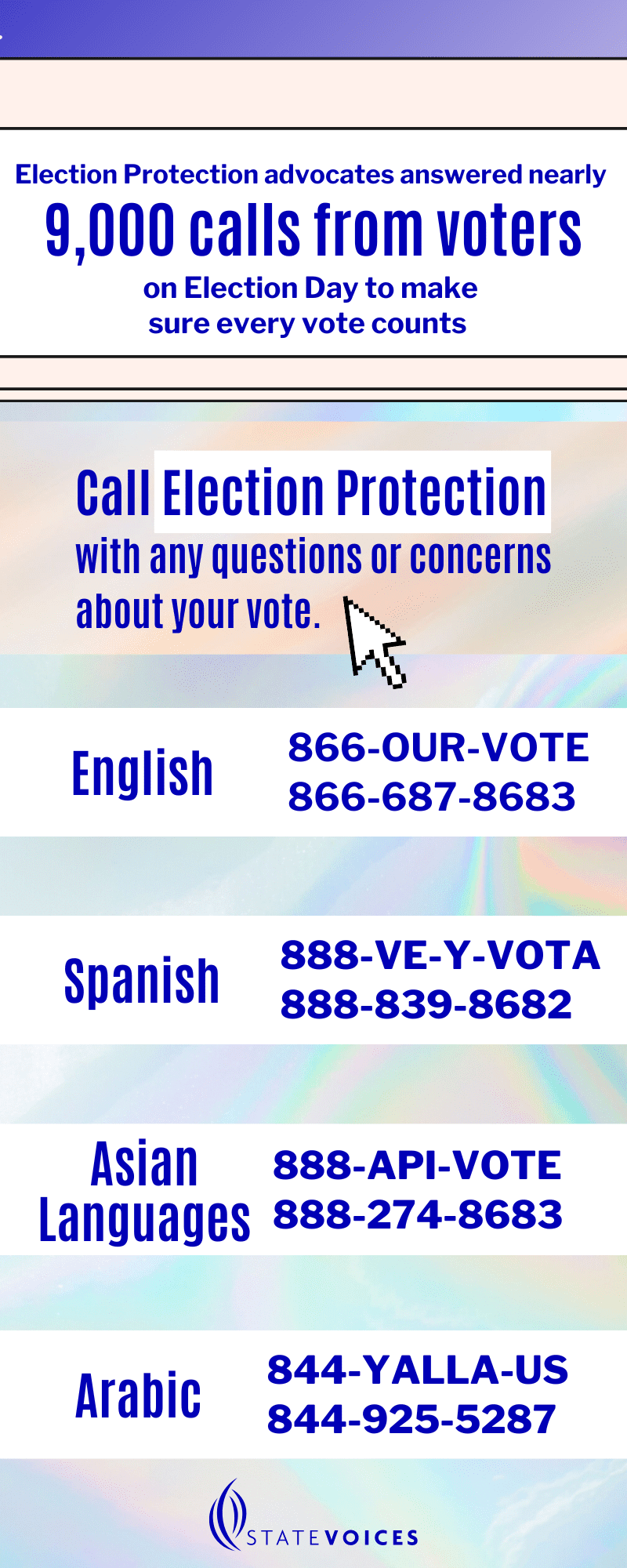
Our network made at least 113 million voter contacts across the U.S. in 2022. Michigan, Nevada, Pennsylvania, and Tennessee are among the states with the highest voter contacts. In Michigan, there were at least 3.2 million contacts. In Nevada, there were at least 1.5 million contacts. In Pennsylvania, there were at least 2.6 million contacts. In Tennessee, there were at least 1.3 million contacts.
At least 8 State Tables in our network were successful in advocating for ballot measures. That includes Michigan and Reproductive Freedom for All (Amendment 7)—this means reproductive justice protections will be codified in the state constitution; Nebraska and Raise the Wage (Initiative 433) won—this means minimum wage will increase to $15 an hour by 2026, with adjustments each year after that for inflation; and Massachusetts and Fair Share Amendment (Question 1)—this means that the wealthy will pay higher taxes to will generate funds for transportation and public education.
Election Protection advocates answered nearly 9,000 calls from voters on Election Day to ensure every vote counts. Voters can continue to call the Election Protection hotline with any questions they have about voting.
Integrated Civic Engagement: GOTV, Ballot Initiatives, and Election Protection
Getting Out the Vote
Leading up to the 2022 election, our network, in partnership with the Voter Participation Center, made at least 113 million voter contacts across the United States, using a variety of outreach methods, including phone, email, text messaging, and door-knocking. We also conducted voter registration and registered over 818,000 voters in 2022. Our network made more than 3.2 million contacts in Michigan; more than 2.6 million in Pennsylvania; more than 1.5 million in Nevada; and more than 1.3 million in Tennessee. These numbers are preliminary, and we will share updated numbers over the coming weeks.
State Voices hired over 20 Digital Organizers, including people who were formerly incarcerated, to support national and state digital efforts. This culminated in more than 3.7 million text messages and more than 4,000 phone calls in the weeks leading up to the election.
The goal of some lawmakers and corporate lobbyists is to make it harder for millions of people in the U.S. to vote. That’s not an accident; it’s a coordinated attack on the freedom to vote that directly targets Black, Brown, Indigenous, immigrant, low-income, young, and new voters.
By actively and intentionally working to turn out BIPOC voters to participate in our democracy, State Voices works to improve representation in our communities and make sure that voices from BIPOC communities are heard.
“Midterm elections determine how my local government will be led. That’s important to me as it intimately has effects on my day-to-day life”
– Tonya R., Digital Organizer in State Voices’ Digital Organizing Program
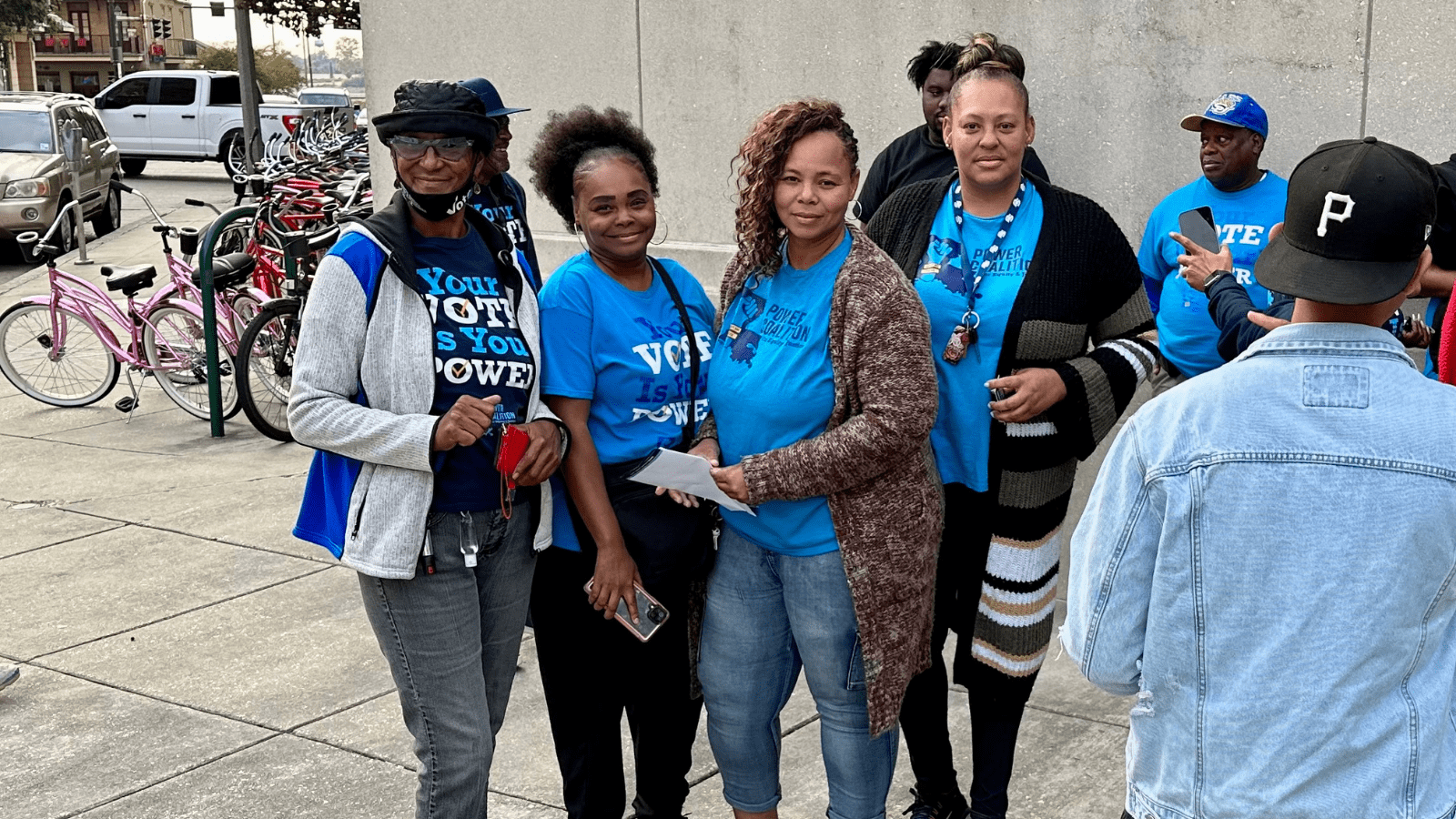
Rising Up for Reproductive Justice
We believe in freedom and agency over our bodies and reproductive lives. Our zip codes, how much money we make, the color of our skin — nothing should come between any of us and our health care.
Access to reproductive health care is an economic justice issue. It’s about ensuring folks have the means they need to thrive and live full lives.
Far too many people no longer have the right to an abortion. That’s especially true for Black, Latinx, Indigenous, women, queer and trans communities in the South and Midwest. Black and brown organizers in Michigan and Kentucky are advocating for reproductive freedom via ballot initiatives this year.
In Michigan, Michigan Voices and their partners successfully advocated for Reproductive Freedom for All, a campaign for a constitutional amendment that will include reproductive justice protections in the state constitution. Michigan voters approved the measure after advocates for reproductive justice gathered a record of more than 750,000 signatures to put the measure on the ballot. Overall, Michigan voters are on track to break turnout records, and 2022 may be a new record for turnout in the state.
Click here to learn more about how Michigan Voices is fighting for reproductive freedom.
In Kentucky, the Kentucky Civic Engagement Table and their partners with Protect Kentucky Access helped to combat a ballot initiative that would have restricted abortion access completely to people in the state. And in California, Engage San Diego and their partners helped to pass Proposition 1, which voters overwhelmingly approved to codify abortion access in the state constitution.
“We heard tremendous energy from voters to make their voices heard when it comes to access to abortion following the Supreme Court’s Dobbs decision. The organizing led by Black women in states like Michigan and Kentucky make it clear that we as voters are the face of hope in our country – not lawmakers or the elite few.”
– Mishara Davis, Director of Issue and Electoral Organizing at State Voices

Rising Up for Economic Justice
State Voices believes in the value and dignity of everyone’s work. So many of us work hard to provide for ourselves and our families. Still, low wages and a concentration of political power among the wealthy elite too often deprive low-income and BIPOC communities of economic opportunity. Not only do we need political leaders who will stand up for economic justice, we also need voters to have the chance to advocate for themselves directly through ballot measures.
In Massachusetts, the Massachusetts Voter Table and their partners at Raise Up Massachusetts mobilized around the Fair Share Amendment ballot measure. This bold initiative, which voters approved, will tax the rich to generate about $2 billion in annual support for transportation and public education. The richest one percent will pay just four cents more on every dollar they earn after their first $1 million in a single year. And residents who earn less than $1 million per year won’t pay a cent more.
In Nebraska, the Nebraska Civic Engagement Table and their partners collaborated on the Raise the Wage Nebraska campaign by mobilizing Nebraskans around support for Initiative 433, which will implement a gradual increase of the minimum wage to $15 an hour by 2026 and adjustments each year after that for inflation. The measure passed with roughly 60 percent of the vote, according to unofficial results.
At the moment, full-time minimum wage workers in Nebraska make only $19,000 a year. Raising the minimum wage will support hard-working Nebraskans employed as home care aides, school aides, restaurant workers, and skilled assembly line workers. Passing the initiative would also mean child poverty would immediately decline, increasing positive outcomes for Nebraska’s children and families.
In New Mexico, the New Mexico Civic Engagement Table/Center for Civic Policy and their partners successfully advocated for a boost of nearly $150 million next year in early childhood education by increasing yearly distributions from the state’s permanent school fund. The change will pave the way to give educators a raise while providing high-quality education and childcare for families with young children.
“Poor people are spending way more money on state and local taxes – proportionally – compared to the wealthiest people in the state. We need to fix that problem. The upside is we can fund our schools and our transit systems with an extra $2 billion a year in taxes.”
— Beth Huang, Executive Director of Massachusetts Voter Table
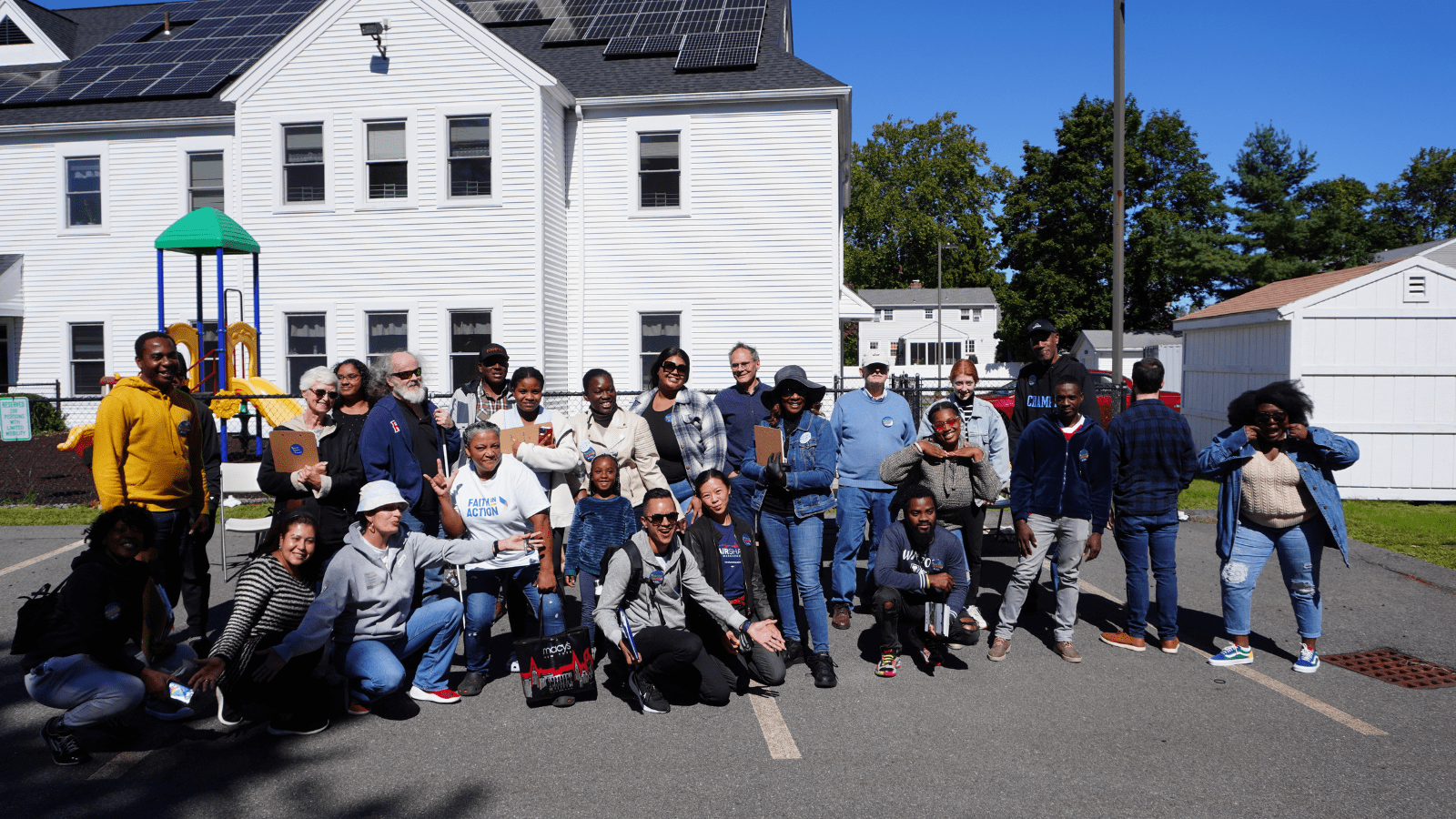
Rising Up Against State Violence
In 2020, we witnessed a resurgence of organizers and advocates calling for an end to state violence. Police brutality and harassment expose foundational flaws in our democracy. As we shared in 2020, “how can Black communities engage in the civic process equitably when so many are in cages, are disenfranchised, or are rightfully fearful of or disillusioned by the state?”
In Ohio, Ohio Voice partners, including Freedom BLOC, Akron Urban League, Akron NAACP and St. Ashworth Temple successfully advocated for the passage of ballot initiative Issue 10, which will establish a civilian review board as a first step towards accountability for police. Earlier in October, the advocates organized a march with their communities to demand justice for Jayland Walker. Jayland Walker was 25 years old when Akron police murdered him in July 2022.
In Louisiana, Power Coalition for Equity and Justice and their partners advocated in support of Amendment 7. This amendment would remove language in the state’s constitution that permits slavery and involuntary servitude as criminal punishments. Unfortunately, the measure did not pass. In Alabama, Tennessee, Vermont, and Oregon voters approved similar measures to prohibit slavery and involuntary servitude as punishments for crimes.
The support and successes of these ballot campaigns demonstrate the power of BIPOC community organizing. The people closest to the issues are closest to the solutions, and by engaging one another in the civic process, we can make real change in our everyday lives.
“Police do not keep us safe. We keep us safe. This is exactly why we need a civilian review board — which is just the first step in moving toward a world where there is real accountability and justice and where every one of us can live full and healthy lives, no exceptions. Akron wins when we vote for Issue 10 because that is how we will keep us safe.”
— Freedom BLOC

Election Protection
State Voices helps lead the nonpartisan Election Protection coalition, a collection of organizations dedicated to protecting the right to vote. As the largest national, nonpartisan voter protection effort, with more than 100 participating organizations and thousands of volunteers answering hotline calls and providing on-the-ground support for voters. We’re committed to helping all eligible voters cast a ballot that counts.
Election Protection provides people across the country with comprehensive information and assistance at all stages of voting, including voter registration, early and mail voting, or casting a ballot at the polls. We answer questions and also work to document and resolve problems voters experience through the 866-OUR-VOTE hotline.
Leading up to the 2022 midterms, our coalition answered more than 8,500 calls over the hotline to help voters make their voices heard. Election Protection is a key part of year-round civic engagement and power building.
In Pennsylvania, Pennsylvania Voice staff participated in the state command center to address voter concerns and questions coming from the 866-Our-Vote hotline. Pennsylvania Voice also coordinated election defenders in the field, who successfully de-escalated situations that arose at the polls. Months in advance of the election, Pennsylvania Voice laid the groundwork for ensuring voter access to the polls by working with the Pennsylvania Department of State to make sure that voters who were wrongfully rejected were able to be added to the voter rolls.
In Nevada, Silver State Voices hosted leadership training programs in two counties where participants learned about crucial issues to our democracy, including civic engagement; finding their voice; the state of voting rights in Nevada; writing and giving public testimony; working the polls; and election protection. The newly trained local leaders then led voting-related and civic engagement events in their communities. One Silver State Voices partner, All Voting is Local, also recruited students and staff members to help with election protection efforts.
In Ohio, Ohio Voice partner The Ohio Voter Rights Coalition worked with Faith in Public Life on their Election Protection Peacekeepers program. Faith leaders across the state went to polling locations during the last weekend of early voting and on Election Day to bring peace and protection to the polls. They used de-escalation tactics to ensure every voter felt safe and protected as they voted. Peacekeepers were also on-call to respond quickly to any developing incidents.
“State Voices is committed to ensuring that every eligible voter is able to cast a vote that counts and all voters have access to polls free of fear or intimidation. We’re engaging members of our community with de-escalation and bystander trainings to help support voters and promote safety, because we know that we can keep us safe better than any outside interest.”
— Marissa Liebling, Director of Policy at State Voices
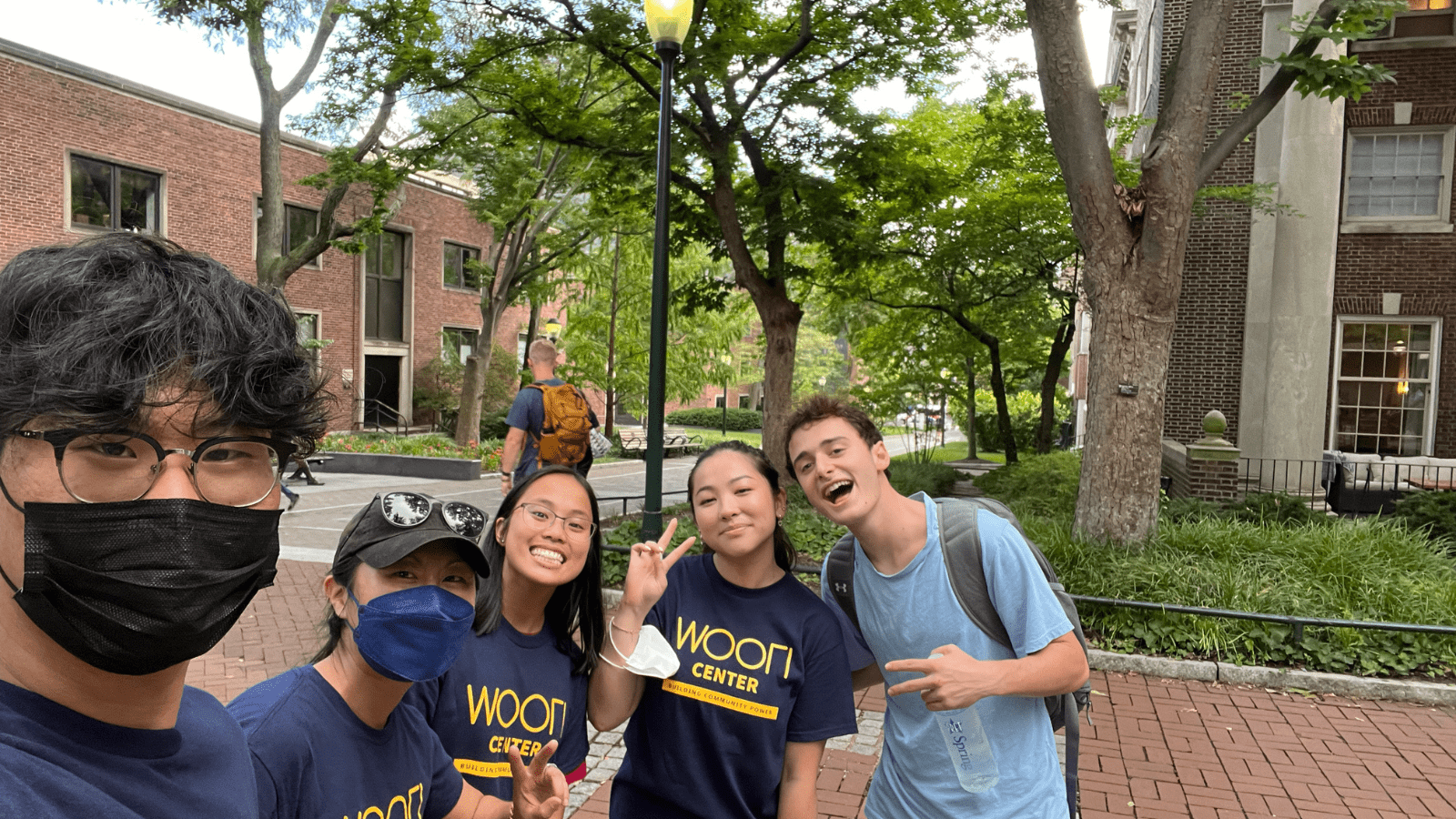
Civic Tech Innovation
Civic tech is the core of the State Voices network. Expanding access to data, tech, and tools to marginalized communities helps them coordinate programs, share information, mobilize their neighbors and friends, and navigate heightened surveillance, targeting, or disinformation.
Since 2017, State Voices has graduated 520 data practitioners from our Data Certification Program. In 2022, State Voices graduated 72 BIPOC data practitioners. Every year since 2020, we’ve released a free Tools and Tech Guide to help organizers and activists do work digitally.
For the 2022 midterm election season, State Voices worked with State Tables, Emerging States, and our Tools for All partners to administer a variety of tools for outreach, education, and mobilization. We also helped our partners understand the changing digital landscape due to mobile carriers’ 10DLC rules.

Moving Money to the Ground
Our nationwide network understands that we must invest in BIPOC organizers and their ideas about what freedom and liberation can look like. It’s our duty to ensure they are funded and follow their lead.
That’s why in 2022, we regranted $8.4M and coordinated $1.3 M directly to Tables and partners nationwide. These funds supported critical programs like voting rights education and engagement, Election Protection, redistricting and census, issue advocacy, tools and tech, and more. Additionally, we sent $25,000 of personal protective equipment, including masks, COVID tests, hand sanitizers, thermometers, and more, to Kentucky, Georgia, Missouri, New Mexico, and Michigan to support safe on-the-ground coordination.
“Funds allocated to our data team allow our staff to serve as a point person and provide support to our partners during a busy and hectic election cycle when time is truly of the essence. Having a go-to resource can be a key component of our partners’ voter mobilization strategy at different stages throughout the election season. The targeted investment we received allows us to accommodate long-term considerations and approach future work with intentionality.”
— Serena Sebring, Executive Director at Blueprint NC

Building Leadership & Capacity
At State Voices, we believe all power should be with the people. Our nationwide network of 25 State Tables and 8 Emerging States partners with over 1,200 organizations across the country.
In the State Voices Network, women run the show: 88% of our State Tables are led by women and 72% by women of color. In an organization led by women and historically marginalized people, we understand the importance of a democracy that listens to us.
We’re not done with our election analysis yet. Return to this page regularly for updates as State Voices continues our analysis of the 2022 midterm season, and stay tuned for the release of our full annual report with deeper analysis by state in February 2022.
Categories: Civic Tech and Innovation, Integrated Civic Engagement
